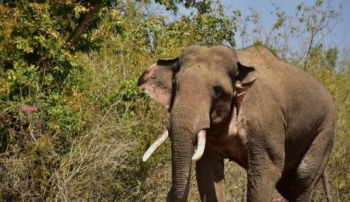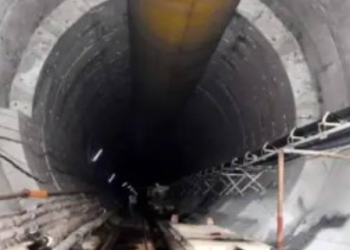New Delhi: The site of the West Bengal government-owned tourist camping station inside the Buxa Tiger Reserve’s (BTR) core area will be changed as the National Green Tribunal has directed the Tourism Department to hand it over to the Forest Department, after finding gross violations at the national park in the eastern Himalayas.
The NGT’s principal bench, headed by Justice Adarsh Kumar Goel (retd), said that instead of demolition, the camp can be used as an interpretation-cum-training centre for nature conservation and management by the Forest Department.
However, if the establishment is not transferred to the Forest Department within two months, it will be demolished, said the recently-passed order.
The green court held that the camping site was being used for commercial purposes which are not permissible in the core area of the tiger reserve as per provisions of the Wildlife (Protection) Act, 1972.
The development came following the petition of green crusader Subhas Datta, who had approached the tribunal, pointing out a large number of violations in the forest area — a wildlife habitat that houses the royal Bengal tiger — but has been converted into a revenue village by the state government.
Earlier, the government argued that the camp is a temporary structure.
According to the Tourism Department, the camping station on the outskirts of Jayanti village was given to it by the Forest Department. In the camping station, villagers are getting opportunities for employment and the camping station was set up prior to December 5, 1997, before the declaration of the area as a National Park, it was argued.
However, the petitioner pointed out that the official website of the Tourism Department gives a list of 31 tourist centres which include the present structure.
It also highlighted an advertisement in a major daily to let out various rooms including AC and non-ACs as evidence of commercial use of the reserve.
Following the intervention of the tribunal, 20 establishments under the West Bengal government, namely of the Tourism, PWD, and Irrigation Departments at Jainti and the homestays in Buxa have been closed.
In the order dated May 30, the bench said, proceedings have been initiated against the 69 private establishments operating in the core area of the Tiger Reserve and on the bank of river Jayanti, and they will be closed within two months.
The plea also pointed out illegal river bed mining, and stone crushing in violation of the Wildlife (Protection) Act, 1972, among other green violations.
To this, the bench said, the stone crusher activity being within 100 feet of the edge of the river, cannot be allowed, and directed the state PCB and District Magistrate to take action within two months.
It also referred to an earlier order, stating to protect and improve the environment has a direct nexus to the quality of human life, thus, all environmental principles must come to the aid of the courts and tribunals for furthering the cause of sustainable development.
Fringed by the forests of Bhutan and Assam, Buxa in north Bengal has not reported a consistent sighting of tigers in nearly three decades. However, recently an adult male tiger was recorded on a camera trap in the reserve after 23 years.
BTR is a biodiversity hotspot and home to the majority of the species belonging to the cat family, including leopards. There are also common clouded leopards, jungle cats, and fishing cats. The herbivore list includes elephants, Indian gaur, chital, sambars, barking, and hog deer.
(IANS)




















